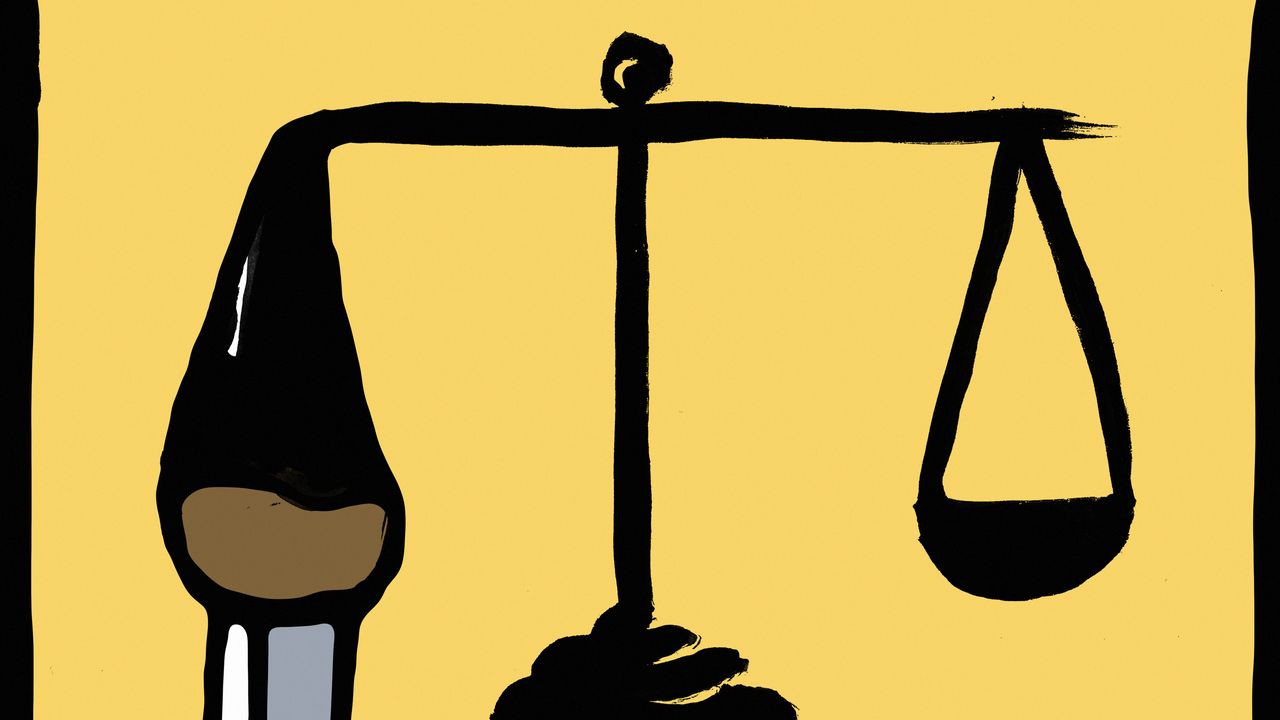When it was reported last month that law school applications are up 20%, some of us who graduated around the 2008 recession thought of that one friend, the liberal artist/activist who, after six months of financial uncertainty, became conveniently passionate about the law. He got busy. He got a haircut. He got a Big Law job he never spoke about except when brandishing his pro bono bonafides.
Law student applications are a bearish indicator—the bearish indicator if you’re young and insufferably promising. Morgan Stanley is revising up the chance of a recession. Gen Zers are revising up the chances Aiden takes the LSAT.
He should check in with my one friend before he does. Big Law attorneys’ wages, which stagnated decades ago, show no sign of recovery with AI encroaching on billable hours. And the prestige associated with both Big Law School and Big Law is under direct threat from the White House. The Trump administration issued a number of executive orders targeting lawyers, including those that have investigated him: taking away the security clearance they need to do business, inquiring about their D.E.I. practices, promising sanctions against those that sue the government. Already, the law firms Paul Weiss, Skadden Arps, and Perkins Coie have cut deals with the White House, promising to spend firm hours that would have once been devoted to pro bono work grooming the administration’s pet causes.
For the lawyers at those firms—currently getting roasted by debt-burdened but resolutely upright public defenders on professional listservs—capitulation isn’t just an inconvenience or ideological affront. It’s a violation of the deal they struck with themselves when they went back to school. The deal that allowed them to fig leaf their personal ambition with the prestige of participating in the broader social project of supporting the Constitution of the United States (and the constitution of the state in which they passed the bar).
Eight months ago, I launched Upper Middle, a publication documenting the growing discomfort among “comfortable” Millennials. Consultants at McKinsey—another tempting career for wayward achievers—had just dropped numbers reporting that middle managers were the target of roughly a third of job cuts in 2023 despite constituting 17% of the workforce. That spike arrived amid broader white-collar wage stagnation and a surge in living costs in metroplexes. Then there was the cultural assault: Trump railing against the Deep State as post-woke Silicon Valley broligarchs depicted the “professional managerial class” as a conspiracy of feckless, self-righteous elites. The economy was booming, but cocktail parties were ending early.
When I began advertising Upper Middle on Instagram—where the millennials hang out after the kids go down—I expected to reach (and monetize) plenty of overcompensated, overcompensating senior associates and junior partners. I didn’t. Instead, I found myself writing for doctors, many of whom emerged from the pandemic having lost conviction in the broader social project of public health. They were exhausted. They were just doing a job. They sounded like journalists—my defanged pack—when they bemoaned careers that had felt like a calling and become a persistent irritation. We shared an allergy to fig leaves.

